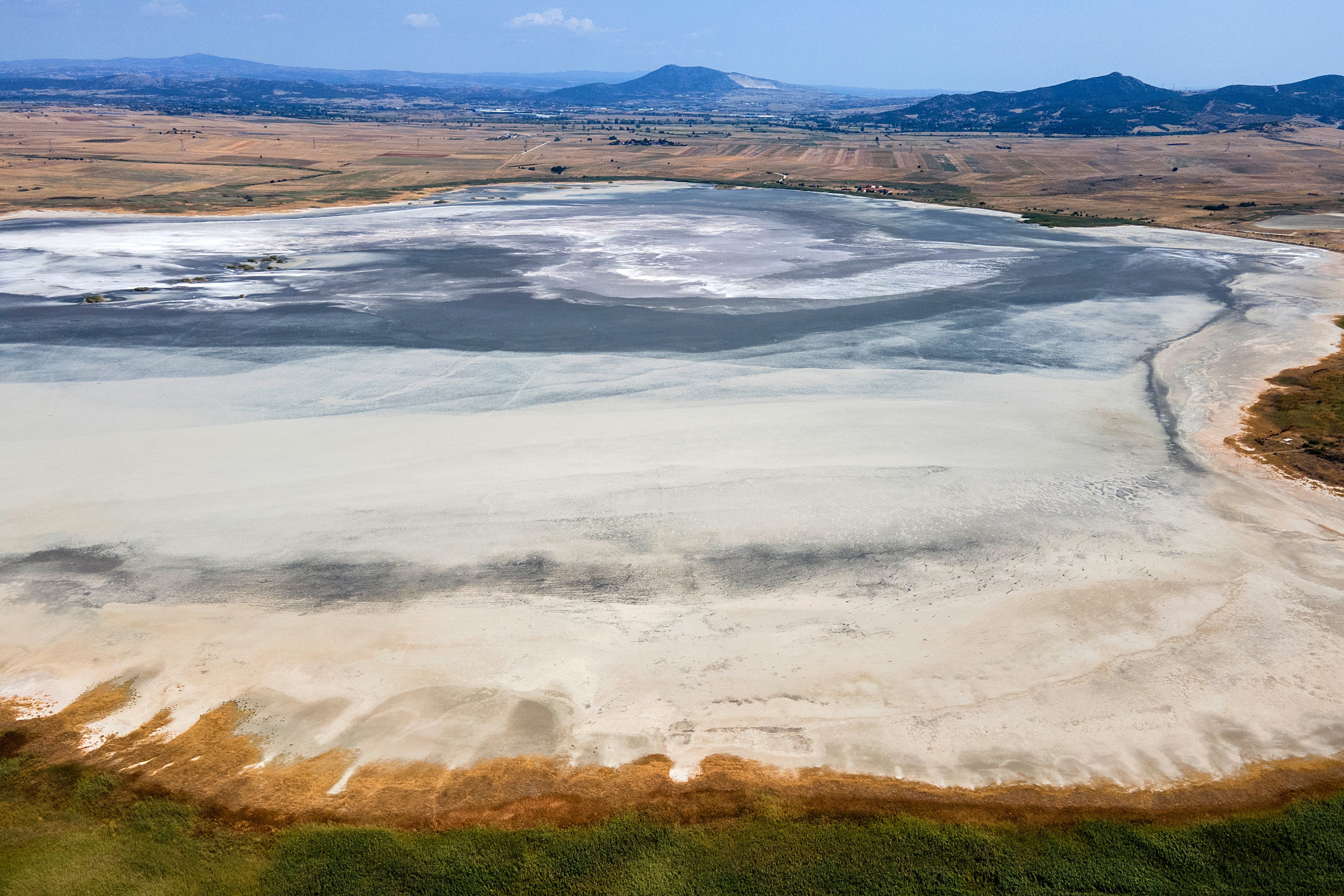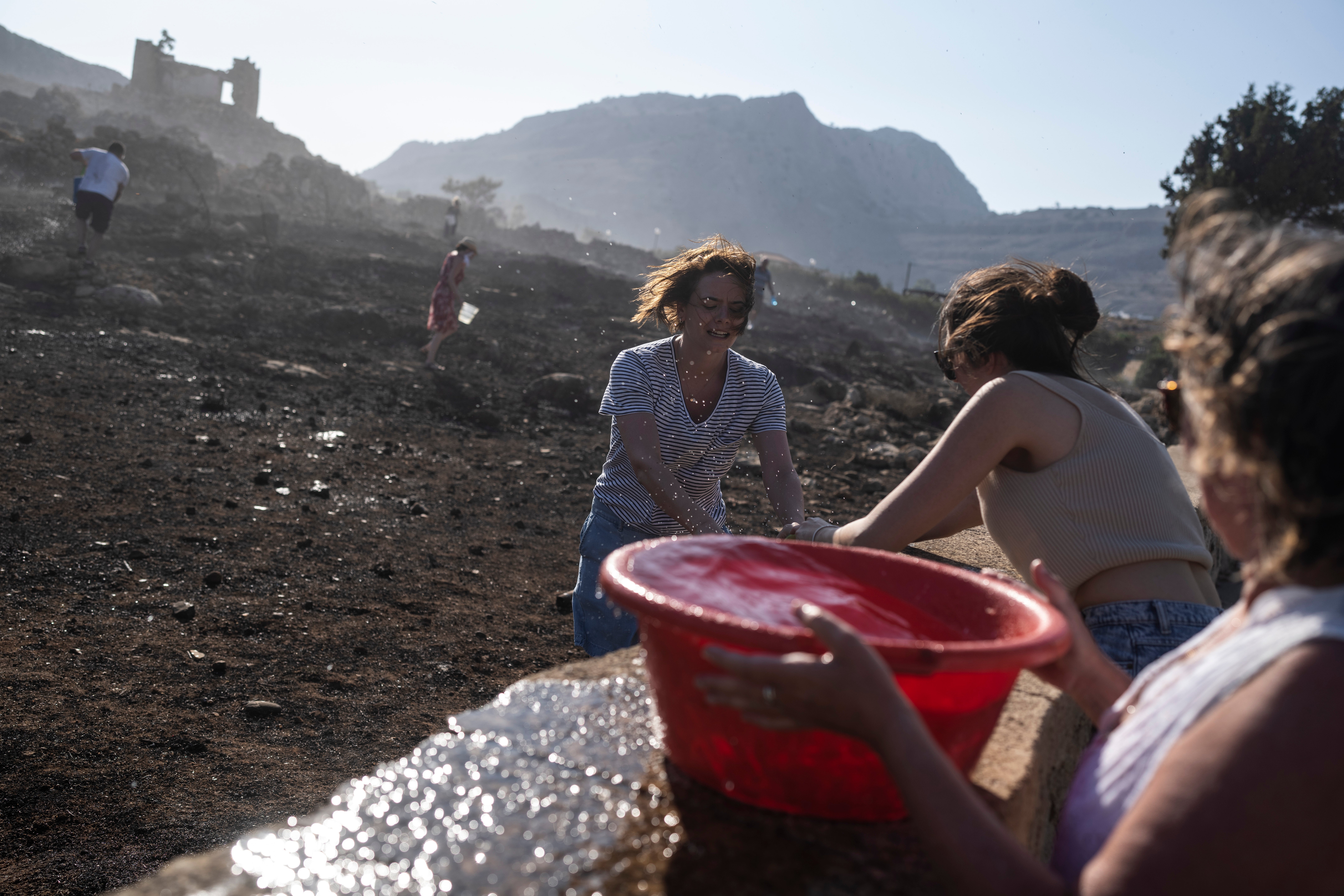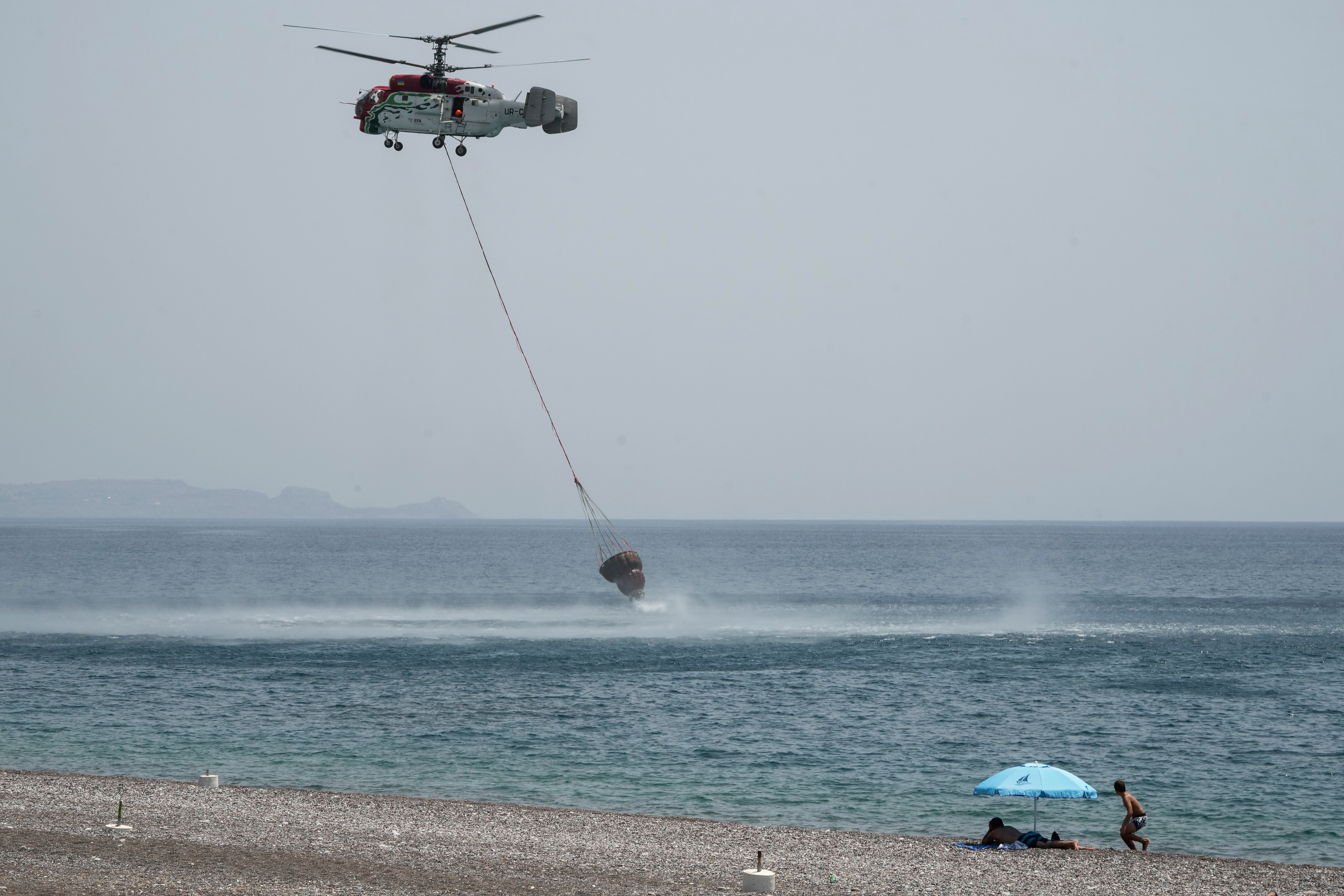Holiday warning as Greece told it must change its tourism model
Greece is among Europe’s hardest-hit countries by global warming

Your support helps us to tell the story
From reproductive rights to climate change to Big Tech, The Independent is on the ground when the story is developing. Whether it's investigating the financials of Elon Musk's pro-Trump PAC or producing our latest documentary, 'The A Word', which shines a light on the American women fighting for reproductive rights, we know how important it is to parse out the facts from the messaging.
At such a critical moment in US history, we need reporters on the ground. Your donation allows us to keep sending journalists to speak to both sides of the story.
The Independent is trusted by Americans across the entire political spectrum. And unlike many other quality news outlets, we choose not to lock Americans out of our reporting and analysis with paywalls. We believe quality journalism should be available to everyone, paid for by those who can afford it.
Your support makes all the difference.Greece has been put under pressure to reimagine a tourism model that climate change is making increasingly untenable.
With its turquoise waters and reliable sunshine, the country has long been a popular holiday destination, attracting nearly 33 million visitors last year and generating 28.5 billion euros in revenue.
This year’s total visitor numbers are expected to rise further, as global tourism sets new records from pre-pandemic levels, but the surge in holidaymakers could undermine the economic mainstay in the near future.
Anger over “overtourism“ has even sparked protests in recent years on the beaches of the Cyclades, a collection of Aegean islands.
“People in Greece are getting more concerned that the (Cycladic islands) are changing very rapidly and, in a few years, what is special is going to be lost,” said Dimitris Vayanos, an economist at the London School of Economics.
Greece is not alone. Residents in other popular European destinations say visitors are harming the environment and local economies, particularly as short-term rentals from home-stay websites like Airbnb drive up housing costs and price people out of their towns and cities.

But Greece is among Europe’s hardest-hit countries by global warming, and rising sea levels, scorching heatwaves, erratic rainfall and frequent wildfires are changing the landscape.
Tourism is placing an extra burden on scarce water resources and threatening fragile coastal environments, leading to calls from local authorities and the national ombudsman to regulate construction, restrict tourist flows and invest in water management and infrastructure.
The government has to balance mitigating these threats against protecting critical tourism earnings. Tourism contributes between 62.8 billion euros and 75.6 billion euros to the Greek economy, roughly a third of gross domestic product annually, according to the Hellenic Tourism Business Association (INSETE).
A law in July updated regulations for tourism agencies, guides and rentals that Tourism Minister Olga Kefalogianni has said will make the country a “global tourism power” part of “critically important” efforts to safeguard the industry and benefit the economy.
But climate change poses existential questions for the industry.
Read more: Best Greek island hotels

A lengthy heatwave in June, followed by the hottest July on record, forced tourist attractions to close and caused a spate of heat-related deaths.
Wildfires, made more intense and frequent by hotter, drier weather linked to climate change, also threaten the tourism industry. A massive blaze earlier this month came within miles of the capital Athens.
Last year, more than 8,000 forest fires raged across the country, and thousands of tourists had to be evacuated from islands, including Rhodes.
“What we want to see is that tourism is sustainable or even regenerative. It has to invest in conservation of the ecosystem, and it has to assist with the cost of managing the tourists on the ground,” said Megan Epler Wood, director of the Sustainable Tourism Asset Management Program (STAMP) at Cornell University in the United States.
The ombudsman, a Greek official who investigates public complaints, said in a June report the country needs to reduce construction and protect water resources and coastal areas to maintain healthy tourism.

It warned of the growing environmental risks from tourism, particularly the additional demands on water supplies for drinking, swimming pools and water parks.
A pilot study, carried out by Greek researchers and UNESCO, the U.N. cultural agency, found that smaller islands in the Aegean Sea already need double the amount of water they can naturally produce to meet demand from tourists, which is set to increase twofold by 2030.
“The more these islands are developed, the less attractive they will be to visitors,” said Vayanos.
Greece should tailor tourism to make it more compatible with environmental standards, including the use of zoning, and concentrate development in specific areas, he said.
The introduction this year of a tourist tax, dubbed the climate resilience fee, is meant to help finance recovery from worsening forest fires and floods.
The fee for guests staying in hotels and short-term rentals is expected to generate up to 300 million euros in additional revenue in 2024.
But Epler Wood said that historically, tourist taxes have gone towards destination marketing rather than benefitting local communities. Research by STAMP found water, waste, energy utilities and affordable housing often did not gain at all.

The Central Union of Greek Municipalities (KEDE) is calling for the revenue from the tax go to local government to help them manage tourists.
There is also little evidence that tourism taxes reduce arrivals, according to a report by strategy company Group NAO.
Nikos Zorzos, the mayor of Santorini, wants to cap the number of daily cruise-ship visitors at 8,000 from as many as 17,000 people.
The impact of climate change in Greece is not limited to rising temperatures and other extreme weather events.

Coastal erosion and declining seagrass meadows, which help give the Mediterranean Sea its characteristic turquoise colour, were identified in addition to floods, water shortages, high temperatures and drought as threats to tourism in an INSETE report.
“As summers will be hotter, extending the tourist season should be a priority by designing high-quality offerings to attract visitors throughout the year. Only in this way can we ensure sustainable and competitive tourism for Greece,” an INSETE spokesperson told the Thomson Reuters Foundation.
INSETE also recommends promoting biodiversity-rich tourism to help generate finance for conservation and promoting alternatives to beach holidays, such as agritourism, gastrotourism, wellness and health and adventure tourism.
“We’re beginning to see a switch towards management of tourism, away from just promotion,” said Ben Lynman, at the Travel Foundation, an NGO that works with governments, businesses, and communities to develop and manage tourism.
Investing in renewable energy or protecting coastal areas and vulnerable infrastructure would also have long-term benefits for the tourist destination, said Epler Wood.
“It can be a positive influence that can help transition countries to a less risky and more resilient future.”
Join our commenting forum
Join thought-provoking conversations, follow other Independent readers and see their replies
Comments